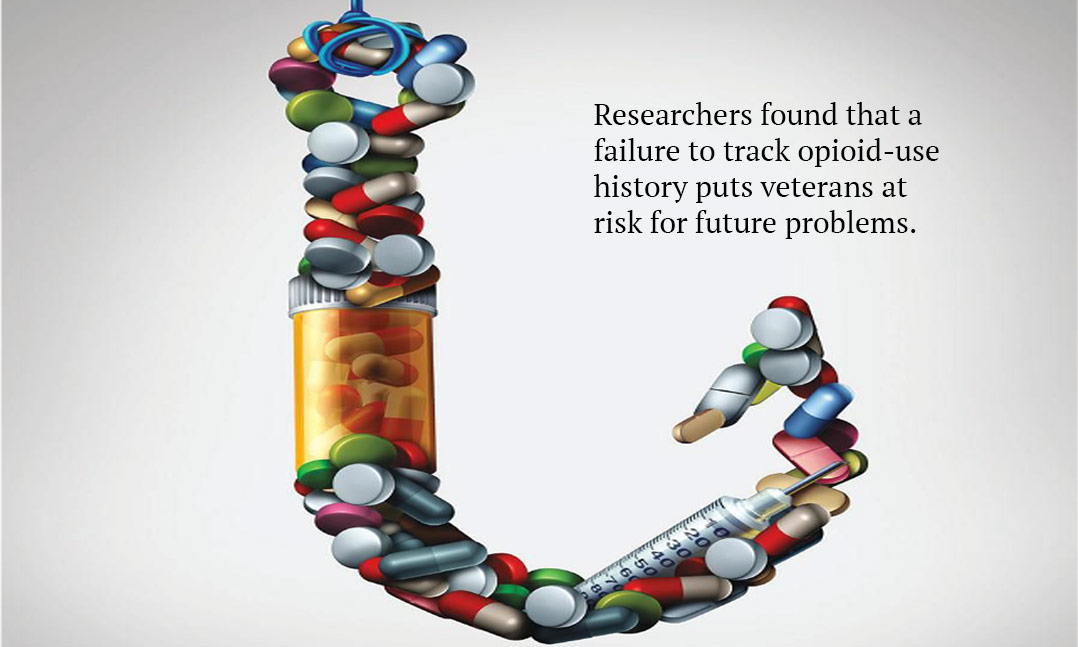A study that took place over 2 months found that more than 78 percent of newly discharged veterans with a Department of Defense-identified opioid addiction did not have that condition listed in their VA health records.
The year-long study oversaw 1,783 discharged military service members whom the DOD identified as having an opioid use disorder. Of those, 45 veterans died, with 20 of the deaths being related to opioid use. Researchers also found that of the living veterans, 1,362 did not have opioid use disorder identified in their VA patient records.
 “There are challenges within the first 12 months after discharge from DOD associated with leaving active duty and transitioning to civilian life, such as homelessness, reintegrating with family, employment, substance mismanagement and the risk of suicide,” the report stated.
“There are challenges within the first 12 months after discharge from DOD associated with leaving active duty and transitioning to civilian life, such as homelessness, reintegrating with family, employment, substance mismanagement and the risk of suicide,” the report stated.
In 2021, according to the Centers for Disease Control and Prevention, the general U.S. population had 106,699 overdose deaths, which is about a 14 percent increase in deaths from the previous year. Of those 2021 deaths, 80,411 of them were related to opioids.
In a report published by The Joint Commission Journal on Quality and Patient Safety in 2021, researchers claimed that veterans were “twice as likely” to die from an accidental opioid overdose compared to the general population. The report was titled Saving Lives: The Veterans Health Administration (VHA) Rapid Naloxone Initiative.
In the review by the VA’s Office of the Inspector General, researchers recommended VA begin implementing solutions to better identify patients who have opioid use disorder. The Inspector General’s Office said VA needs to:
- Find a way for VA health care providers to document opioid use disorder in electronic health records.
- Conduct training on the use, navigation and retrieval of DOD treatment record information.
- Find a way for VA health care providers to access and use DOD treatment records.
- Update the processes VA health care providers use to identify patients with opioid use disorder.
“Failure to identify and document a patient’s known [opioid use history] may decrease the likelihood of future providers using this medically relevant information in clinical decision-making and place patients at risk for adverse outcomes, such as overdose,” researchers stated.
This article is featured in the November/December 2023 issue of VFW magazine, and was written by Dave Spiva, associate editor for VFW magazine.